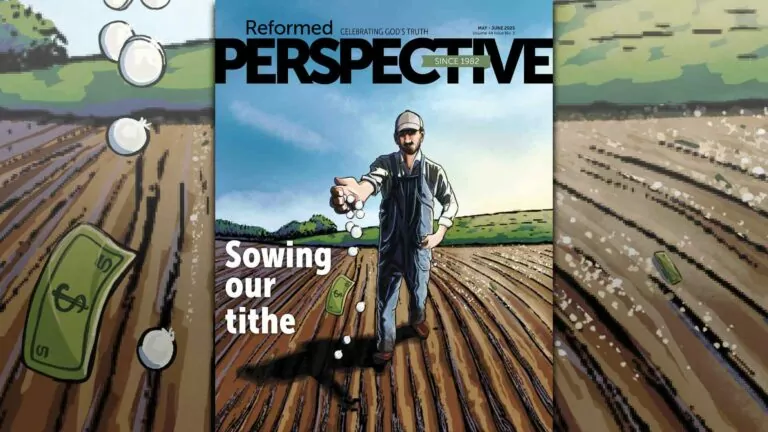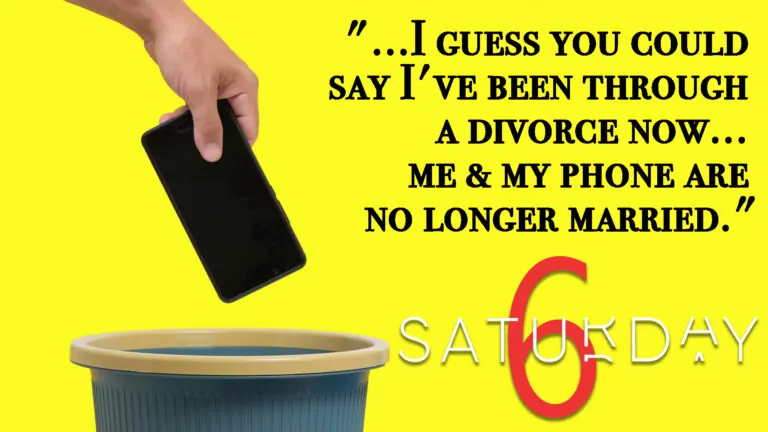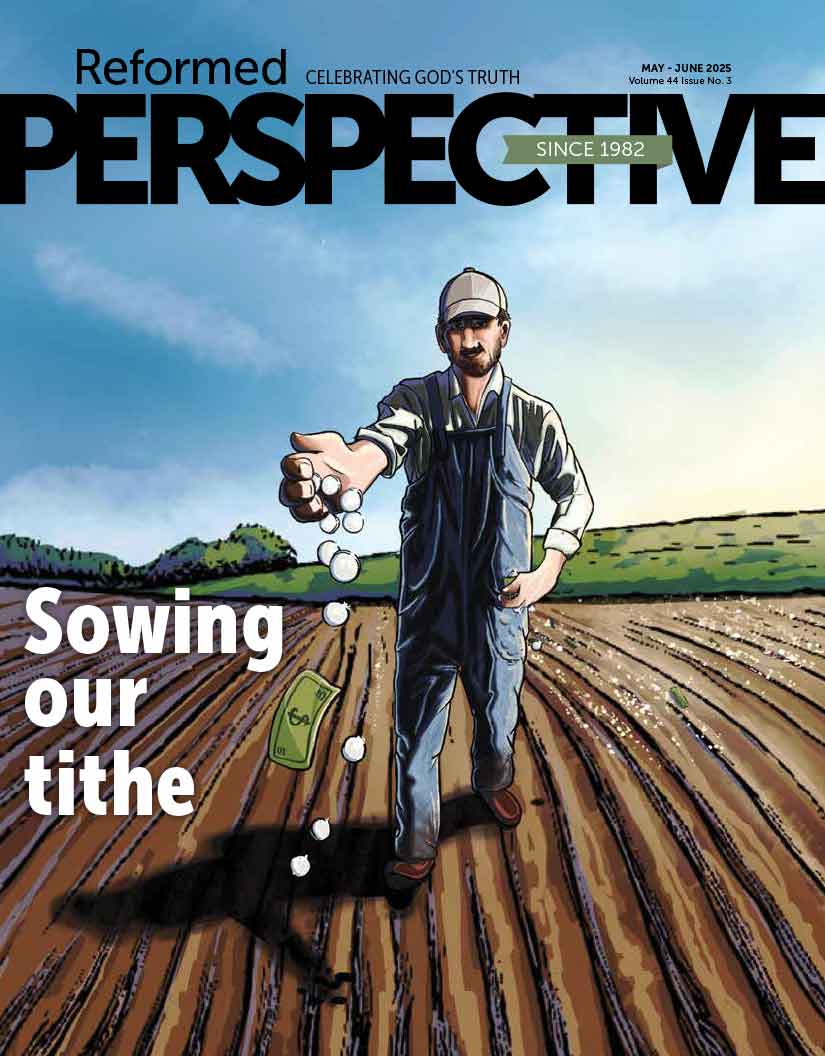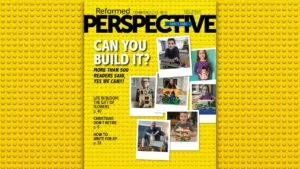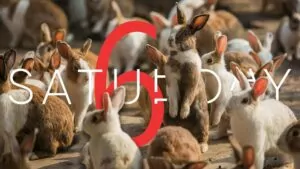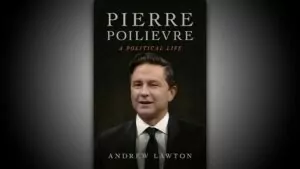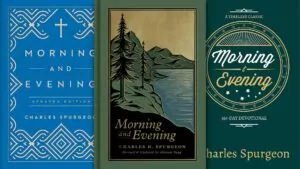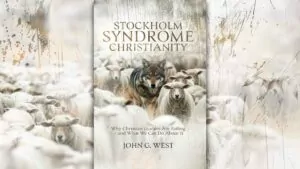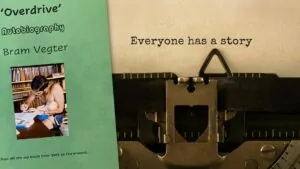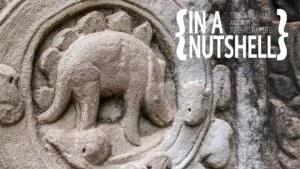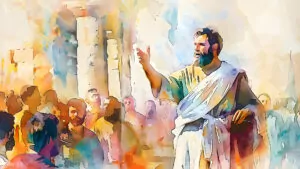A serious problem
God’s people should be confidently playful
*****
As a mental health therapist, I once attended a workshop on developing and maintaining healthy attachments between parents and their children. The presenter’s information was given in a PowerPoint, and I found that I could put a Bible text to every one of his slides. At one point the speaker went as far as saying “if you want to read a great example of a healthy attachment, then read the book of Job.” Because of this workshop I came to the realization that the more a therapeutic modality is in line with biblical teaching, the more accurate and effective the therapy is.
As I developed more in this field, I noticed how important play is as it relates to one’s mental health. That then got me toying with how play must connect with what the Bible teaches us about ourselves. And sure enough, when I started looking, I began seeing evidence of play and humor in the Bible, as well as in the character of God Himself. This further affirmed my initial thoughts on play and mental health and how playfulness is beneficial to Christians.
Play defined
But what do we mean when we talk about “play”? It’s volleyball games and soccer, but more than that too. It’s an attitude too – we can be playful in how we talk, move, and think. Play can be serious and intense – you can play hard! But it’s always about fun – getting to and not having to – and creativity, and just being in the moment. This last point is a big one: play is about the means more than the end. We play hockey for the joy of playing, and winning is awesome, but secondary. Or it isn’t really play anymore.
Play in the Bible
“Seriousness is not a virtue. It would be a heresy, but a much more sensible heresy, to say that seriousness is a vice. It is really a natural trend or lapse into taking one's self gravely, because it is the easiest thing to do. It is much easier to write a good Times leading article than a good joke in Punch. For solemnity flows out of men naturally; but laughter is a leap. It is easy to be heavy: hard to be light. Satan fell by the force of gravity.” – G.K. Chesterton
I chose the title for this article because it is a play on words. It could be interpreted that there is a problem that needs to be taken seriously, and in our current times there are many things we are told are serious problems. After all, we are only a few years away from climate change killing everything on the planet, or, at least, if World War III doesn’t do us in first. Or might four more years of the Trump presidency be worse than both these scenarios combined?
Another way of understanding this title is that there is a problem with being too serious. This understanding would suggest that even if the three threats to humanity just listed all somehow simultaneously occurred, that this still wouldn’t be too serious a situation to joke about. (I just knew an epic string of disasters like this would happen if I took some time off work!) In truth many a problem isn’t so serious, but rather being serious is the problem.
Word plays like this are found throughout the original language of the Bible. One website suggests that in the Old Testament alone there are over 500 plays on words. The problem is that most of them are literally lost in translation.
One example found in the New Testament is when Jesus tells Peter that “on this rock I will build my church” but even there the parenthetic adage that the name Peter means rock is required for it to make sense to us… otherwise it could be used to justify the concept of a Pope.
It could also be argued that the Feast of Tents is mandated play. Every family was told to build a shelter out of sticks and branches to live in for 5 days. For me this sounds like so much fun. I can see kids counting down the days until this celebration, dads competing for the biggest or best designed tent, their children scavenging for branches and sticks and that perfect piece to make a door out of. It reminds me of making a mattress fort for my children (if there are any fathers looking to outdo me, my longest mattress fort was 38 feet long).
The creation of music and lyrics is a form of play – that’s why when someone strums a guitar, we say they are playing the guitar. It’s the same with any instrument: we play them all.
And when we look at the largest book in the Bible, we find it is dedicated to playing instruments. Also music-related, David was commended for playing when he danced as the ark was brought into Jerusalem and his wife punished for taking it too seriously (2 Sam. 6:14-23).
The best evidence of God and play in the Bible is, in my opinion, seen in the way Jesus often responded to questions from the Pharisees. They would come to him with a very pointed question and, instead of getting a somber concise response that was backed with biblical texts, they got a story. It is also worth noting that when Jesus said, “Unless you repent from your sins and become like one of these you will never enter the Kingdom of Heaven” (Matt. 18:3), He was talking about humble, playful children and not the stoic, serious Pharisees.
God and play
“The true object of all human life is play. Earth is a task garden; heaven is a playground.” – G.K. Chesterton
Being created in God’s image means that we reflect the emotions and characteristics of our Creator, but because of our fall into sin we have corrupted these features. So, for example, God’s jealousy is holy and righteous (Ex. 20:5), whereas it is hard for us to think of a time or scenario where our feelings of jealousy were not sinful.
But we can think of times in which we have played in delight and been the better reflection of God for doings so. Now if we, as the image-bearers of God, show our better nature when we are playful, then isn’t it reasonable to conclude that play may be in the Being of God too?
To compound the point, play is found not just in humans but is also witnessed in the animal kingdom, and might that be because God reveals Himself in nature too?
Not only is play seen throughout creation, the act of creating is, in itself, a form of play. Our hobbies often involve creating something or piecing something back together. Woodworking, drawing, painting, knitting, puzzling, writing, quilting . . . all start with a blank canvas and raw material. When what is being created is done for its own sake, and isn’t created for profit or by necessity, that creation is a form of play. If enjoyment is the primary reason for the activity and the secondary reason is profit or necessity it is still play. Since we are created in God’s image it seems fair to suggest that the feelings we have in creating things reflects Him and His pleasure. This can also be seen in Revelation 4:11: “For You created all things, and they exist because You created what You pleased.”
Humor
“Humor is the great thing, the saving thing after all. The minute it crops up, all our hardnesses yield, all our irritations, and resentments flit away, and a sunny spirit takes their place.” – Mark Twain
Another form of play – humor – goes hand in hand with truth. In 1 Kings 18:20-40 we read about how Elijah knew who the living and true God is. He was certain that the altar made to Baal would not catch on fire and he was equally certain that the one made to honor God would. And because he knew these things to be true, he could make fun of the Baal prophets and priests. The religious leaders of Baal were holding on to a lie and seriously thought that if they cut themselves and did every other act of worship that their lie would become true.
We also have the truth with us.
If the point of view you are defending crumbles at a joke, then it is not true. Those that believe a lie often take their point of view extremely seriously. They talk over people, attack their character, call them names and do anything they can to silence their opposition. We see this in the Bible when the Lord’s prophets were killed, and when Jesus was crucified.
The Bible tells us that “male and female, He created them” (Gen. 1:27). The many who believe otherwise can’t defend their point of view, so they try to shut down debate with name-calling, labeling as transphobic any who challenge them. When the satiric website Babylon Bee jokingly gave their “Man of the Year” award to the guy-in-a dress Joe Biden appointed as Assistant Secretary for Health, Twitter kicked the Bee off of their platform – they couldn’t deal with the joke. But like Elijah, Christians can embrace the truth and can in confidence make fun of the lies.
The importance of play
“Common sense and a sense of humor are the same thing, moving at different speeds. A sense of humor is just common sense, dancing.” – Clive James
“Humor can get in under the door while seriousness is still fumbling at the handle.” – G.K. Chesterton
One great benefit of play is how it can relieve anxiety, by pulling us fully into the present. So, it probably shouldn’t surprise us, there are a number of Bible texts that encourage us to be fully in the moment:
“Be still and know that I am God.” Ps. 46:10
“So don’t worry about tomorrow, for tomorrow will bring its own worries. Today’s trouble is enough for today.” Matt. 6:34
“Do not worry about your life, what you will eat or drink, or your body, what you will wear.” Matt. 6:24
“Give us each day the food we need.” Luke 11:3
There are many activities that we can do and be fully in the moment, but most of them also allow for focus on the past or future. Grief is an example of this – you can grieve the loss of a loved one while being fully in the moment; but you can also grieve that loss while thinking about things you could have done while they were still alive, or while thinking about how this loss will impact your family in the future. (It is not wrong to have these thoughts while grieving; I am just pointing out how grieving can be done while thinking of the past or future). Psalm 137 illustrates this in verses 1 and 2 where it says:
“Beside the rivers of Babylon,
we sat and wept
as we thought of Jerusalem.
We put away our harps,
hanging them on the branches of poplar trees.”
This focus on the past prevented them from playing the harp.
The reason anxiety focuses on the past, and on the future, is our desire for control. We want to look back, to supposedly ensure we don’t make any of our alleged mistakes again. Our focus on the future is to consider all possible outcomes of an upcoming event so we can better prepare for it. But with anxiety, this line of thinking never ends with “and we lived happily ever after” – it ends with the worrier thinking they have cancer, or may become homeless.*
In contrast, play is the only activity I know of that cannot be done while worrying about the past or future. This is because play is everything anxiety is not. Anxiety is neat and tidy. It partners with perfectionism to create a standard that is rarely achieved and never celebrated. Anxiety is regimented and time oriented, bound by rules, and it takes everything serious. But play is fluid, and not bound by time. Its rules act more like guidelines and there are exceptions to them. And perfecting a skill is a joyful journey, because play allows things to be “good enough.”
In therapy I often will tell my anxious clients about this concept. Often, I will ask them, when was the last time they felt playful? I’ll then ask them, when was the last time that they could recall not being anxious? For most people it will be the same answer to both questions. The reason is, you cannot be anxious and playful at the same time. You will never see an anxious playful person.
Hormones associated with stress are the same ones that trigger the fight, flight, or freeze response. In high levels of stress, blood flow is directed away from a part of the brain known as the prefrontal cortex. This is the part of the brain where most of our conscious thoughts are. This is also where most of our decision-making is done. This is a contributing factor to why anxious people have difficulties making a decision – the more anxious someone is the harder it becomes for them to think outside of the box.
In contrast, there is a strong association between play and creativity. Einstein acknowledged this connection when he said creativity is just intelligence having fun. His theory of relativity was a result of Einstein playing with the thought of chasing a beam of light around a room.
Some other known benefits of play are improvements in:
problem-solving skills
health, resiliency, and feelings of self-worth
the ability to develop and maintain friendships
the ability to overcome emotional wounds caused by trauma
Serious people often have serious problems
“A person without a sense of humor is like a wagon without springs. It's jolted by every pebble on the road.” – Henry Ward Beecher
One final point to consider is how, in the Bible we can find serious people whose piety is just a façade. Think of the Pharisees and Sadducees – they prayed long and loud in the synagogue and tithed ten percent of their herb garden (Luke 11: 42), but it was all show and no heart. Pride and covetousness blinded them from being genuinely godly. In their zealous “piety” they dared accuse the Son of God of blasphemy, and then murdered Him.
Today we also have very serious people whose piety turns out to be a façade. I view their façade in the same way I do a transgender person’s over-the-top dress, makeup, and mannerisms. In both cases we have an outrageous exaggeration of the real thing.
Conclusion
God created a magnificent world with changing landscapes and terrain, and with vast bodies of water and rivers, which He filled with millions of different creatures. He then gave us playful hearts to explore His creation and to, with childlike wonderment, give Him praise and glory.
God also created us in His image, and as image-bearers, there’s good reason to expect our playfulness is a reflection of a playful God. Is it any wonder then, that the best thing we can do for our spiritual, physical and mental health is play? So, for your and everyone’s sake, go out and play, seriously!
*****
Endnote
*I’lI note I do not subscribe to the belief that all anxiety is sin – there are several different reasons why people are anxious. See my letter to the editor in the Sept/Oct 2023 issue for my thoughts on this....
